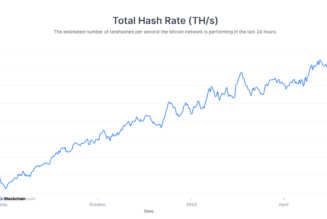If the coronavirus pandemic has had devastating health effects among older, more vulnerable populations across the world, it has also caused another, more subtle crisis among young people: Many young workers, left in the lurch as cities shut down, have lost their income and, in many cases, any real ability to plan for their future.
For a generation that came of age during the hangover of the 2008 financial crisis, it’s a particularly heavy blow. Now, just over 10 years later, they’re facing an even tougher prospect: an economy on lockdown and a severely disrupted job market, with no real end to the uncertainty in sight.
“My father helps me by paying for my gas, and doing the shopping,” said Margiotta. The family has stayed afloat thanks to a government-subsidized furlough program through which he gets part of his paycheck.
“It is not easy,” he said. “I can’t help but think: What if I had my own children?”
No countries for young men
According to the United Nations’ International Labor Organization, more than one in six people between the ages of 18 and 29 have stopped working since the beginning of the pandemic. Those who didn’t lose their job have seen their working hours fall by 23 percent.
Part of the reason the young have been particularly affected is that some 40 percent worked in sectors hardest hit by the crisis — such as tourism or health care — and nearly 77 percent of them held down informal or temporary work with little job security.
Young people across Europe have felt the effects of the crisis — in Germany, the number of people out of work is set to reach 3 million this summer, and in Britain, there are warnings that some 1 million people under 25 could be unemployed by the end of the year unless the government takes action. But the problem is particularly acute in Southern Europe.
In Spain, Greece, Italy and France, rigid labor markets have traditionally put long-term contracts out of reach of the young and led to higher-than-average youth unemployment rates. These countries also have important tourism industries, meaning they were hit particularly hard by travel restrictions and the cost of following new sanitary measures.
In Italy, half the jobs destroyed by the pandemic were held by people under 35.
The number of employed people under 24 in May decreased by 11 percent compared with last year. By comparison, in the 35-49 age range, employment fell by 4 percent, and for people over 50, employment grew by 0.9 percent.
That generational split is starker than in any previous recession, according to Tito Boeri, an Italian economist and academic.
‘Wrong choices’
Since the start of the pandemic, the Italian government has approved several measures to try to contain the damage, such as temporarily blocking layoffs and introducing furlough schemes, but not everyone has benefited.
Although furlough options were extended to all workers, the freeze on layoffs only applies to workers with permanent contracts. Most young people, who tend to get hired on short-term contracts, were left unprotected.
Italy’s crisis is exacerbated by decades of bad policies that have forced young people into precarious working situations, said Giuseppe Provenzano, a young Democratic Party politician who is minister for the south in Giuseppe Conte’s government.
“The increase in youth unemployment in Italy is not the result of bad luck, but of wrong choices made over the past decades,” he said.
The government, according to Provenzano, should take active measures to make working conditions less precarious for young people, including by creating incentives for companies to hire young people and women — especially in the south, where unemployment rates are higher — and give them more stable contracts.
EU funding designed to boost digitization and sustainability across the bloc could help drive new youth employment, and Italy needs to make sure it uses that money “in the best way possible,” he added.
For young Italians like Margiotta, who had finally started to feel they had some job security, the crisis has eliminated what little certainty they had. A long-term government plan may be welcome, but they are hoping for a quicker fix.
The problem, said Margiotta, is not just that so many young people have lost their jobs, but that it’s proving extremely difficult to find another one.
“Companies, of course, are not starting to hire now, and the future is less certain than ever,” he said. “Recently, I managed to find a job on an assembly line. They hired me with a one-week contract.”
Seeing that he was out of options to get by, he ended up applying for unemployment benefits. “It’s depressing,” he said. “But I have no other choice.”










